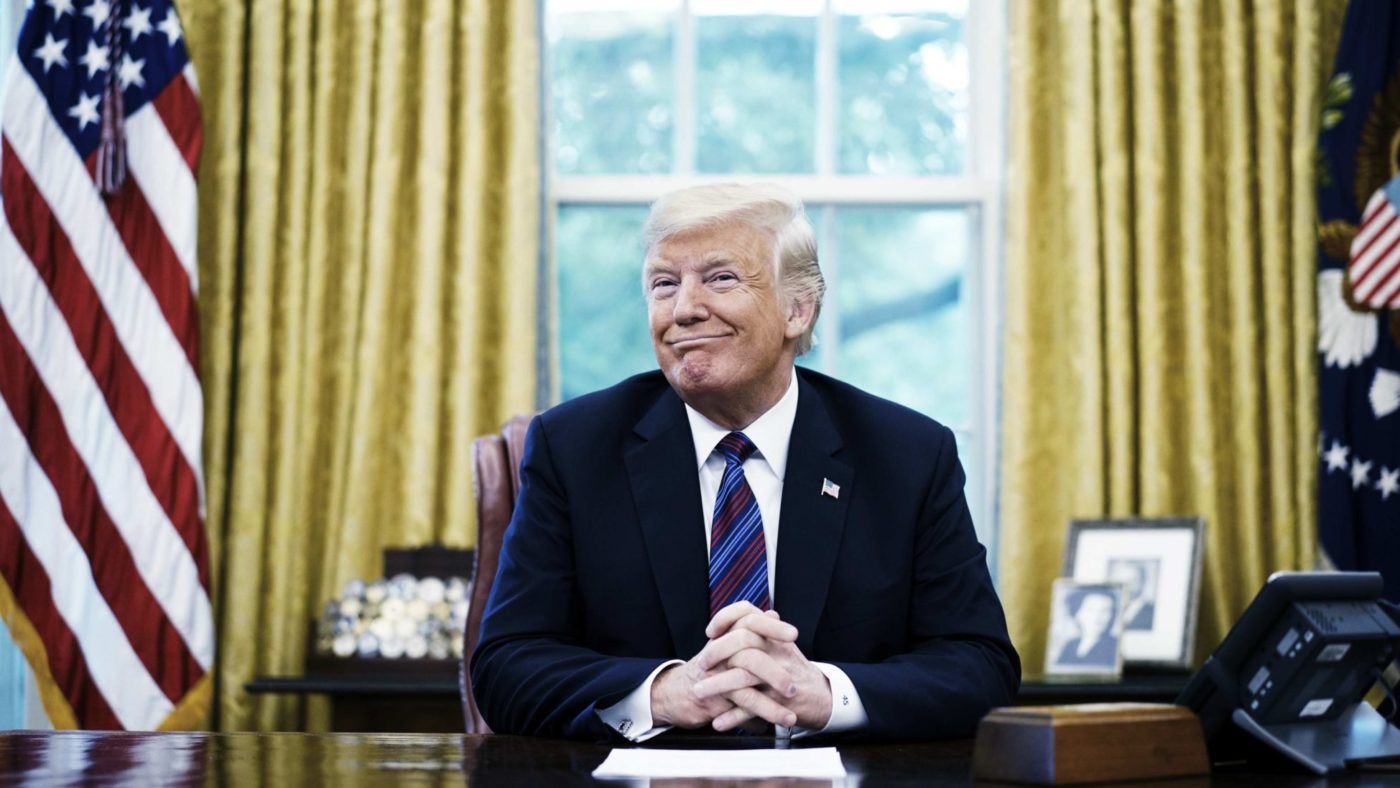The new United States-Mexico-Canada Agreement (USMCA) is an illustration of President Donald Trump’s political business model – echoing the one he employed as real estate developer.
There was a lot of bluster and noise over the North American Free Trade Agreement (NAFTA) – “the worst trade deal in the history of the country” – followed by modest substantive tweaks and, most importantly for Trump, a name change.
Some of the changes agreed on by the United States, Mexico, and Canada are welcome. The partial opening of the heavily protected Canadian diary market to US competition is going to benefit both Canadian producers and US farmers. Given the size of Canada’s dairy industry and the narrow focus on a small number of dairy products such as infant formula, the economic effects will be extremely modest – while likely triggering loud and well-organised opposition from the Canadian dairy lobby.
Likewise, a revision of intellectual property rules was long overdue, although the devil is in the detail. The economic effects of overly strong IP protection (creating monopoly power) can be as damaging as protections that are too weak (discouraging innovation). The revisions of the controversial Chapter 11 of NAFTA, which set up mechanisms for resolving disputes between investors and governments (ISDS) are likely a mixed bag, too.
The original purpose of such mechanisms was to protect investment in poorly governed environments, especially against the risk of expropriation. It would be hard to argue that such risks are significant either in the United States or Canada, which has been a favourite target of ISDS suits in recent past.
On the other hand, similar protections are justified in the case of Mexico, particularly if Andrés Manuel López Obrador’s governing philosophy ends up matching his populist rhetoric. Whilst protections for energy and telecommunications firms operating in Mexico will remain in place under USMCA, they will be gone for most other industries, amplifying the already existing sense of political and legal uncertainty surrounding the country’s president-elect.
Finally, one would be hard-pressed to find a compelling economic rationale for the most consequential part of USMCA: new rules guiding automobile trade. Those include the requirement that zero tariffs be applied only on vehicles with 75 percent of components produced in United States, Mexico, or Canada.
More importantly, the rules to be phased in from 2020 onwards will require that in order to qualify for zero tariffs, an increasing part of the production must be done by workers earning at least $16 an hour – way above prevailing salary levels in Mexico.
The new rule reflects President Trump’s touting of ‘fair trade’, under which US workers should not have to compete against Mexican workers with much lower wages. But that view ignores the nature of value chains in the automobile industry, in which workers in different countries not only compete but also complement each other.
Making a part of those production chains more expensive will make North American car manufacturing as a whole less competitive, ultimately putting at risk even jobs in the United States that President Trump purports to protect.
Still, considering the range of possible outcomes, a sigh of relief is in order. President Trump’s zero-sum view of the world and his penchant for grand gestures and publicity stunts created a real risk that NAFTA – one of the great successes of trade liberalisation around the world – would follow the fate of other agreements from which his administration decided to withdraw.
Forcing higher wages and labour protection standards on a relatively poor country such as Mexico will have unintended consequences, but that is likely an acceptable price for keeping trade in North America tariff-free.
Like his earlier ‘deal’ with European Commission’s President Jean-Claude Juncker (“a tough, tough cookie”), USMCA shows how President Trump’s protectionism can be constrained by other world leaders: by letting the US President score easy headline-grabbing victories, which will allow him to claim that he has ‘fixed’ previously ‘horrible’ trade deals, while leaving the substance of policies mostly unchanged.
In the meantime, nothing prevents Western economies from dismantling lingering trade barriers further, with or without the United States at the table.
Pursuing that path may not be as politically satisfying as asserting moral superiority over the current occupant of the White House but it is the only way to navigate a world in which the United States plays a major economic and geopolitical role. The stakes – particularly preserving and reforming the multilateral trading system built around the WTO – are too high to even entertain repaying the current administration’s grumpiness in kind.


